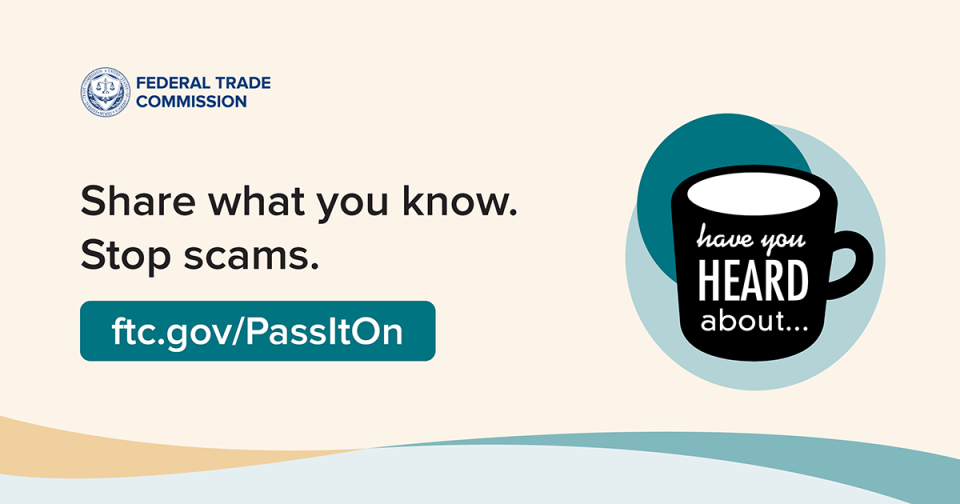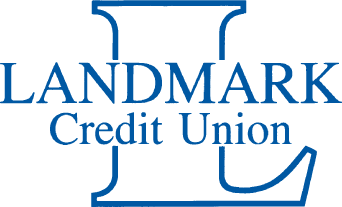Fraud Awareness
The sooner you take action, the better you can protect yourself and help others. Your first steps should focus on stopping further losses and gathering the information you have about the scheme and the perpetrators while it is still fresh. Then, report the crime as soon as possible.
- Notify your bank, lenders
- Set up a fraud alert or credit freeze with the three major credit bureaus –Experian, TransUnion, and Equifax
- Enable additional security features in your digital banking to better protect your accounts
- Report a fraud or identity theft to the FTC
- Dispute fraudulent transactions
While you can’t always prevent fraud from happening, you can take steps to protect and educate yourself on all the different scams:
Identity Theft:
Someone gets your personal information and runs up charges in your name. They might use your Social Security or Medicare number, your credit card, or your medical insurance — along with your good name.
Here are signs that someone is using your identity: You get bills for things you didn’t buy or services you didn’t use. Your bank account has withdrawals you didn’t make. You don’t get bills you expect. Or you check your credit report and find accounts you never knew about.
Phishing Scams:
With phishing, scammers use texts and emails to trick individuals into giving up personal information. The information they want includes passwords, Social Security numbers, account numbers and more. Their goal is to access your personal accounts, such as email accounts and bank and other financial accounts. Phishing scams are popular because of the accessibility of reaching large numbers of people through email and text messages. Phishing emails and texts often look as if they are sent from trusted companies you may already know. Typically, phishing scams require you to click on a link and complete an action like confirming personal information. The message may even mention suspicious activity on a personal account.
Unwanted Calls and Text Messages:
You pick up the phone and hear a recorded message — a robocall — or a live person selling something. Maybe it’s not who your caller ID said it was. Or you get an unexpected text message saying you won a prize, have a package waiting, or must contact your bank.
Recorded sales calls are illegal unless you give a business written permission to robocall you. If your number is on the Do Not Call Registry, you’re not supposed to get any recorded or live sales calls. But scammers ignore the rules about when and how they can call you.
Scammers use technology to make any name or number show up on your caller ID: the IRS, a business you know, or even your own number. You can’t trust caller ID because phone numbers can be faked. Scammers send text messages to trick you into clicking links and giving personal information.
Impersonator Scams:
You get a call or an email. It might say you’ve won a prize. It might seem to come from a government official. Maybe it seems to be from someone you know — your grandchild, a relative or a friend. Or maybe it’s from someone you feel like you know, but you haven’t met in person — say, a person you met online who you’ve been writing to.
Whatever the story, the request is the same: wire money to pay taxes or fees, or to help someone you care about. But is the person who you think it is? Is there an emergency or a prize? Judging by the complaints to the Federal Trade Commission (FTC), the answer is no. The person calling you is pretending to be someone else.
Unsolicited Check Scams:
Have you ever received a check in the mail that you weren’t expecting? It could look like a rebate check or a refund for overpayment. Inspect the check thoroughly, paying close attention to any fine print on the front or back. There’s a chance that you are entering into a legally binding contract by signing the check and cashing it. Scammers use tactics like this to get you to authorize memberships, loans and other longer-term commitments that could cost you dearly.
Scammers are counting on your blindly accepting the check as free money and cashing it. Be wary of cashing any rebate or refund check you weren’t expecting.
Government Imposter Scams:
Scammers sometimes pretend to be government officials to get you to send them money. They might promise lottery winnings if you pay “taxes” or other fees, or they might threaten you with arrest or a lawsuit if you don’t pay a supposed debt. Regardless of their tactics, their goal is the same: to get you to send them money.
Don’t do it. Federal government agencies and federal employees don’t ask people to send money for prizes or unpaid loans, nor are they permitted to ask you to wire money or add money to a prepaid debit card to pay for anything.
Health Insurance Scams:
You get a call or see an ad offering you big discounts on health insurance. Or maybe someone contacts you out of the blue, says they’re from the government, and asks for your Medicare number to issue you a new card.
Scammers follow the news. When it’s Medicare open season, or when health insurance is a big story, scammers get busy contacting people. They want to get your Social Security number, financial account numbers, or insurance information.
Think about these questions. Is that discount insurance plan a good deal? Is that “government official” really from the government? Do you really have to get a new health insurance card? The answer to all three is almost always: No.
Employment Scams:
Employment scams are another common way scammers try to gain access to people’s financial accounts. The scammer promises guaranteed work in exchange for an up-front fee. They may also ask for bank account information so they can transfer commission payments to you. This is all a front to get your bank account information, though.
Job scams often come through emails, but scammers also target people by phone and mail.
Unemployment Scams:
There are two main types of unemployment fraud. One scheme involves individuals receiving inappropriate or fraudulent deposits from a state unemployment agency. The other scam involves imposters filing a claim using the names and personal information of people who have not filed claims. Those individuals will learn about the fraud when they get a notice from their state unemployment benefits office or their employer about their supposed application.
Most of the time the payments are deposited to accounts the fraudsters control, but on occasion they can make it to the real person’s account. If this happens to you, be aware, the fraudster may call, text, or email in an attempt to get some of the funds sent to them. They may pretend to be from your state unemployment agency and say the money was sent by mistake and will ask you to send it back via wire, cash, or gift cards. Do not send funds back in this manner, contact the state unemployment agency and your financial institution.
Job and Money-Making Scams:
You see an ad saying you can earn big money, even working from home. Another ad offers help starting an online business — with a proven system to make money. Maybe you uploaded your resume to a job search website, and someone contacts you for an interview — but first, they want your driver’s license and bank account numbers.
If you respond to these opportunities to work from home, you’ll get requests for money — for training or special access — but you’ll never get the job. If you buy the proven system, you’ll get pressure to pay more for extra services. But you won’t get anything that really helps you start a business or make money. And if you give the caller your driver’s license and bank account numbers, they might steal your identity or your money.
Charity Fraud:
Someone contacts you asking for a donation to their charity. It sounds like a group you’ve heard of, it seems real, and you want to help.
But how can you tell what’s a scam? Charity scammers want to get your money quickly. They often pressure you to donate right away. They ask for cash, gift cards, cryptocurrency, or wire transfers. Scammers often refuse to send you information about the charity. They won’t answer questions or explain how the money will be used. They might even lie and say you already made a pledge to donate.
Romance Scams:
Someone contacts you on social media — and they’re interested in getting to know you. Or maybe you meet someone special on a dating website or mobile app. Soon the person wants to write to you directly or start talking on the phone. They say it’s true love, but they live far away — maybe because of work, or because they’re in the military.
Then they start asking for money. Maybe it’s for a plane ticket to visit you. Or emergency surgery. Or something else urgent.
Scammers of all ages, genders, and sexual orientations make fake profiles, sometimes using photos of other people — even stolen pictures of real military personnel. They build relationships — some even pretend to plan weddings — before they disappear with your money.
Home Repair Scams
Someone knocks on your door or calls you. They say they can fix your leaky roof, put in new windows, or install the latest energy-efficient solar panels. They might find you after a flood, windstorm, or other natural disaster. They pressure you to act quickly and might ask you to pay in cash or offer to get you financing.
But here’s what happens next: they run off with your money and never make the repairs. Or they do shoddy repairs that make things worse. Maybe they got you to sign a bad financing agreement that puts your house at risk.
"You've Won" Scams:
You get a call, letter, email, or text saying that you won! Maybe it’s a vacation or cruise, a lottery or a sweepstakes. The person calling about your prize is so excited. They can’t wait for you to get your winnings.
But here’s what happens next. They say there are fees, taxes, or customs duties to pay. Then they ask for your credit card number or bank account information. Or they ask you to pay with cash, gift cards, wire transfers, or cryptocurrency.
If you pay a scammer or share information, you lose. There is no prize. Instead, you get more requests for money, and more false promises that you won big.
Grandkid and Family Scams:
You get a call: “Grandma, I need money for bail.” Or money for a medical bill. Or some other kind of trouble. The caller says it’s urgent — and tells you to keep it a secret.
But is the caller who you think it is? Scammers are good at pretending to be someone they’re not. They can be convincing: sometimes using information from social networking sites, or hacking into your loved one’s email account, to make it seem more real. And they’ll pressure you to send money before you have time to think.
Pass it on! Share this with a friend.

For more information click on the link below:


 Discover the difference become a member
Discover the difference become a member Lending solutions for all of life's big moments
Lending solutions for all of life's big moments Invest in your future, finance your car with Landmark Credit Union
Invest in your future, finance your car with Landmark Credit Union Our member loyalty program offers discounts on your loan rates
Our member loyalty program offers discounts on your loan rates Borrowing with us helps keep our community strong
Borrowing with us helps keep our community strong